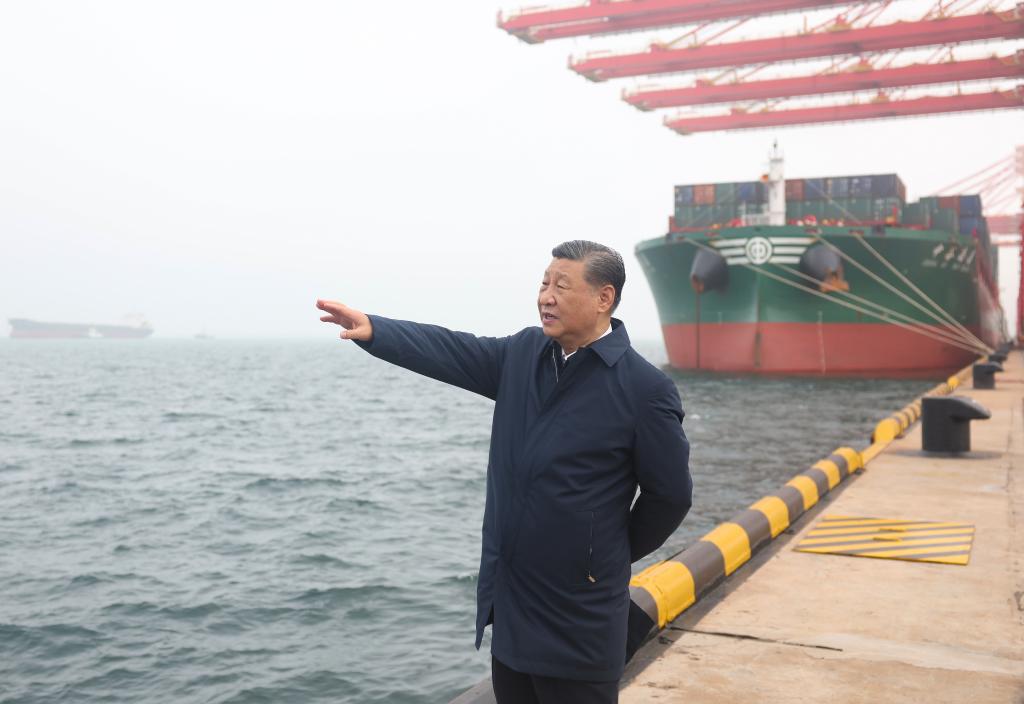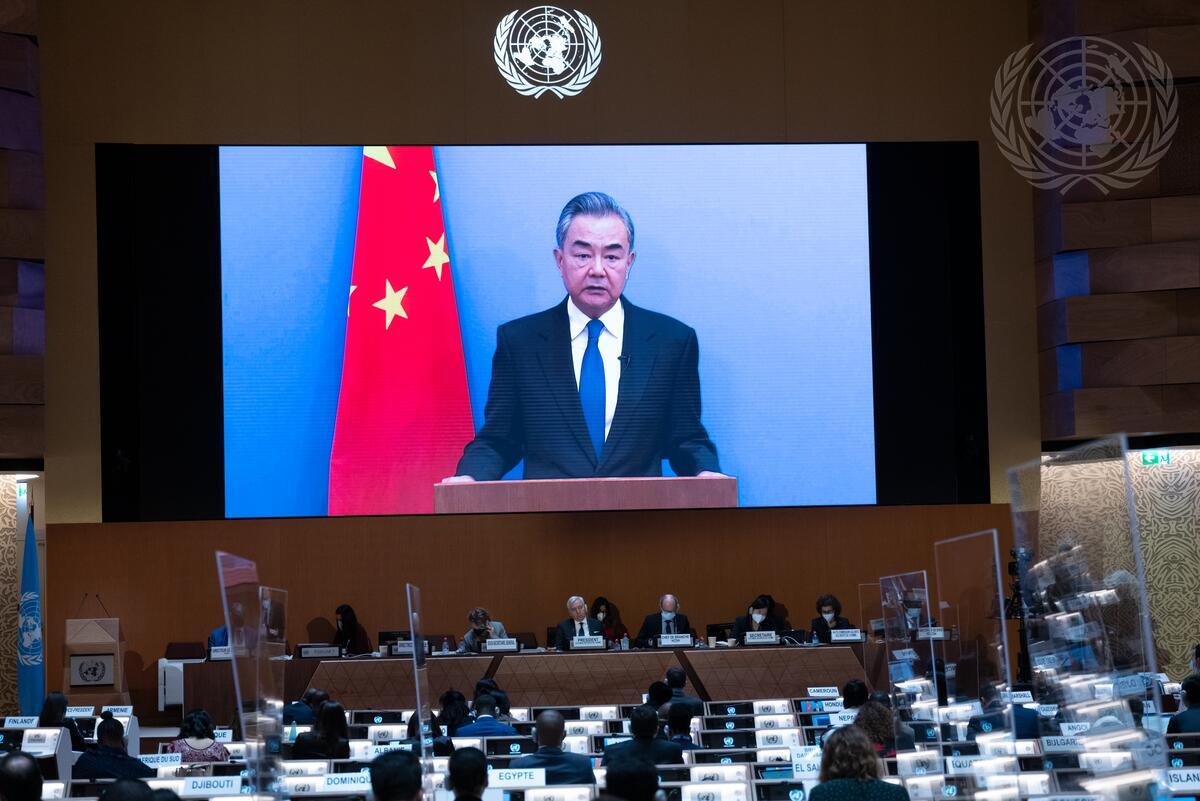
The PRC’s Drive for Judicial Power at Sea
The PRC’s Drive for Judicial Power at Sea
Executive Summary:
- Enhancing “maritime judiciary” is now a priority for building a “strong sea power,” according to the recommendations for the 15th Five-Year Plan.
- Beijing is actively countering unfavorable international maritime rulings by international organizations by advancing its own dispute resolution mechanisms and institutions.
- The lack of a “Maritime Basic Law,” however, continues to hamper the ability of the government to coordinate domestic institutions in support of its growing maritime ambitions.
The latest “recommendations” (建议) for the 15th Five-Year Plan, issued last month by the Chinese Communist Party (CCP) Central Committee, explicitly call for enhancing the country’s “maritime judiciary” (海事司法) as part of its decade-long agenda to build a “strong sea power” (建设海洋强国) (Xinhua, October 28).
This is the first appearance of the term “maritime judiciary” in a five-year plan recommendation document. It aligns with emphasis in the 14th Five-Year Plan on pursuing “legal struggles” at sea (法理斗争) to defend maritime rights and interests (Xinhua, March 13, 2021). It also signals that judicial capacity in maritime affairs is now officially embedded within the broader maritime strategy of the People’s Republic of China (PRC).
Using Judicial Tools to Advance Geopolitical Interests
The PRC has long viewed judicial instruments as tools to reinforce political authority and administrative presence in disputed maritime areas. Over the past several decades, it has enacted a series of maritime-related laws that comprehensively address resource exploitation, environmental protection, shipping, maritime claims, and law enforcement. Collectively, these laws have facilitated expanded civilian and commercial activities in contested waters while offering statutory grounds for increasingly assertive law-enforcement actions against vessels of other claimant states (China Brief Notes, July 30).
In 2013, Hainan Province adopted measures to implement the national Fisheries Law (渔业法). This explicitly targeted foreigners and foreign fishing vessels operating in waters under Hainan’s administration, including much of the South China Sea (Standing Committee of the Hainan Provincial People’s Congress, November 29, 2013; China Brief, January 17, 2014). Immediately after the measures’ implementation, Chinese fishing fleets reportedly were encouraged to operate in disputed areas, accompanied by stepped-up enforcement actions against foreign boats in the name of “protecting” Chinese fishermen (The Diplomat, March 7, 2014; Reuters, July 28, 2014).
In 2021, the PRC empowered the China Coast Guard (CCG) through the Coast Guard Law (海警法) to “take all means necessary including the use of weapons” (采取包括使用武器在内的一切必要措施) to protect the country’s expansive maritime claims—from economic and environmental interests to sovereignty claims (Xinhua, January 22, 2021; China Brief, January 25, 2021, July 16, 2021, June 21, 2024). The establishment of a national nature reserve at Scarborough Shoal under the Nature Reserve Regulations (自然保护区条例) is just the latest use of domestic legal instruments to consolidate claims over disputed waters (CCTV, September 12). Within the judicial system, judges of the Supreme People’s Court (SPC) are required to ensure that adjudication in maritime cases supports the PRC’s strategic interests, particularly over matters of national sovereignty (SPC, October 10).
A Platform to Reshape International Norms
The PRC treats maritime judiciary construction as a core pillar of its broader “foreign-related rule of law” (涉外法治建设) agenda, aimed at increasing its influence over international law and global governance (SPC, October 13).
The 2016 South China Sea arbitration award, in which a tribunal constituted under the United Nations Convention on Law of the Sea ruled against the PRC’s claims to the vast majority of the South China Sea, reinforced Beijing’s determination to develop alternative mechanisms for maritime dispute resolution and to reduce reliance on international tribunals it considers illegitimate (PRC Ministry of Foreign Affairs, July 13, 2016). Since then, while consistently framing international arbitration as the “complication and internationalization” (复杂化、国际化) of the South China Sea issue, Beijing has favored bilateral engagements to exert greater influence while excluding what it terms “extra-regional powers” (域外势力) (Xinhua, June 8).
The PRC has prioritized international maritime mediation as its preferred dispute-resolution modality in according to this ambition (SPC, March 3, 2016). In the same year as the arbitration ruling, the Supreme People’s Court introduced a goal to establish an “international maritime judicial center” (国际海事司法中心) in its annual work report (SPC, March 16, 2016). Recent articles published by the South China Sea Strategic Situation Probing Initiative (SCSPI; 南海战略态势感知计划), a research initiative often cited by state media and viewed as closely aligned with Beijing’s policy perspectives, call for creating a “new narrative” (新叙事) for the South China Sea through mediation with other claimants. They also call for displacing the “old narrative” (旧叙事) brought by Western countries, especially by the United States (SCSPI, July 18). Chinese experts increasingly link maritime dispute resolution efforts to new mediation bodies, notably the International Organization for Mediation in Hong Kong, which is designed to promote China-supported norms and mechanisms (SCSPI, June 20; China Brief, October 31).
Coordinating Domestic Institutional Capacity
The PRC first established dedicated maritime courts (海事法院) in 1984, but the system has struggled with administrative fragmentation due to the growing complexity of maritime issues and the dispersion of jurisdiction across multiple coastal regions (Supreme People’s Procuratorate, June 8).
In 2012, the Foreign Affairs Committee of the National People’s Congress (NPC) proposed creating a comprehensive Maritime Basic Law (海洋基本法) to consolidate disparate maritime legal and administrative matters under a unified national framework (NPC, October 26, 2012). According to the Academy of Ocean of China (AOC; 中国海洋发展研究中心), a state-affiliated institute, such a law would strengthen maritime governance by mediating domestic and international maritime regulations, encouraging civilian activities at sea, and supporting maritime law enforcement (AOC, May 2). The need for such a law was subsequently reiterated in both the 13th and 14th Five-Year Plans (Xinhua, March 17, 2016, March 13, 2021). However, as the regulatory framework and administrative apparatus governing maritime affairs continue to expand with the country’s evolving maritime interests—particularly following the State Council’s 2018 institutional reform, the PRC still faces difficulties in cutting through the bureaucratic red tape necessary for advancing the Basic Law (AOC, March 13, 2023).
Beyond integrating legal authorities, Beijing has worked to coordinate institutions, especially judicial and procuratorial authorities. Earlier this year, the Supreme People’s Court and the Supreme People’s Procuratorate issued a joint notice calling for stronger nation-wide coordination and oversight of maritime courts to address operational inconsistencies (SPC, June 8).
Institutional coordination has been especially visible in Sansha City, the PRC administrative unit established on disputed islands in the South China Sea. In September, the Sansha Maritime Safety Administration and the Haikou Maritime Court signed the Maritime Administrative Law-Enforcement and Judicial Cooperation Agreement (海事行政执法司法协助协议), pledging to strengthen cooperation in maritime law enforcement across the South China Sea (Sansha TV, September 8).
Conclusion
The PRC has made sustained efforts to expand legal instruments, build new mediation platforms, and coordinate judicial institutions. But its maritime judiciary faces persistent structural challenges. The country’s rapidly expanding maritime interests continue to outpace the development of a unified legal framework, particularly in the absence of a long-anticipated maritime basic law. As Beijing seeks to integrate judicial tools into its maritime strategy, administrative fragmentation and jurisdictional complexity will remain enduring constraints. How the PRC balances these internal limitations with its ambition to project legal authority abroad will shape the evolution of its maritime governance in the years ahead.


